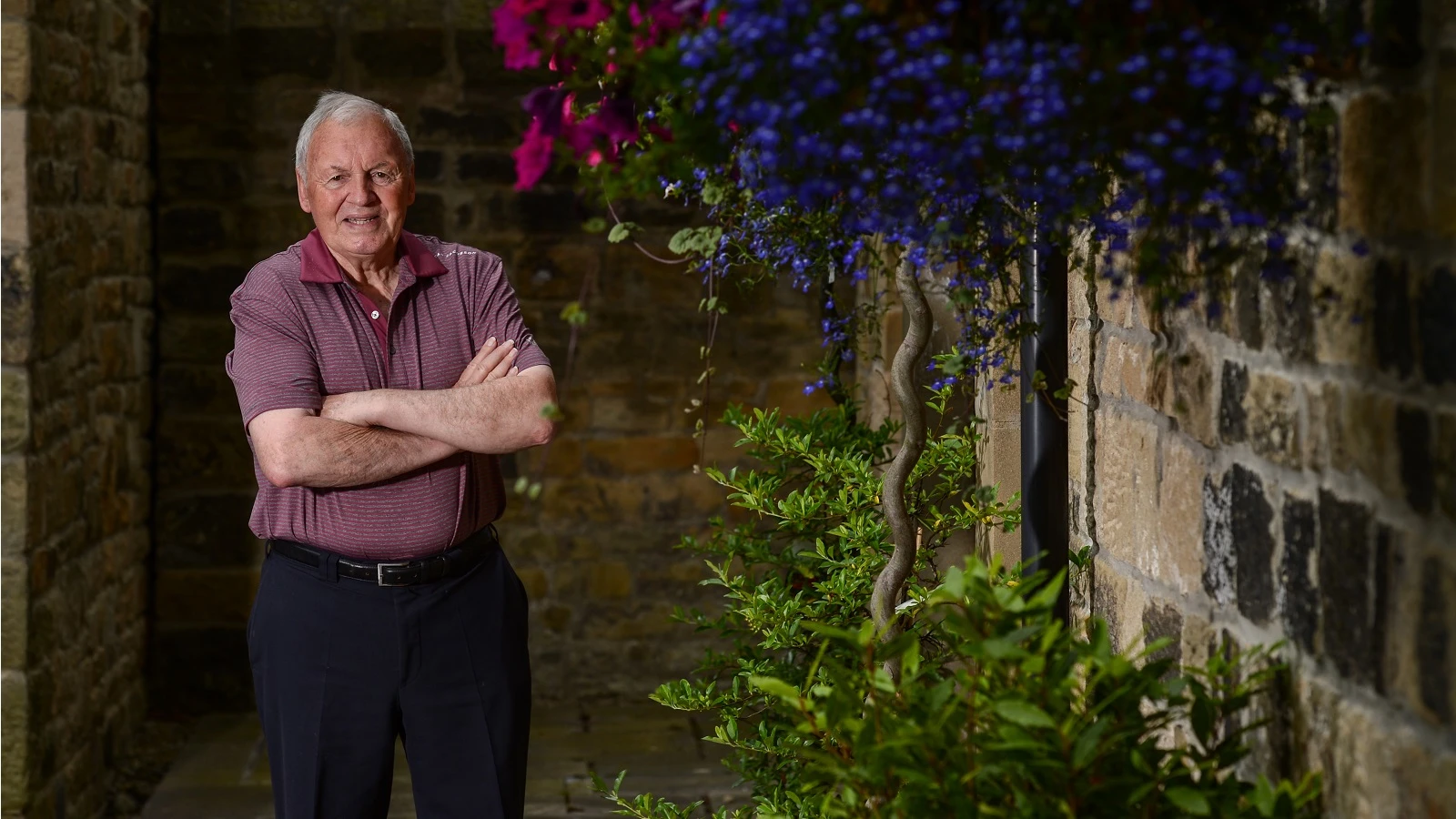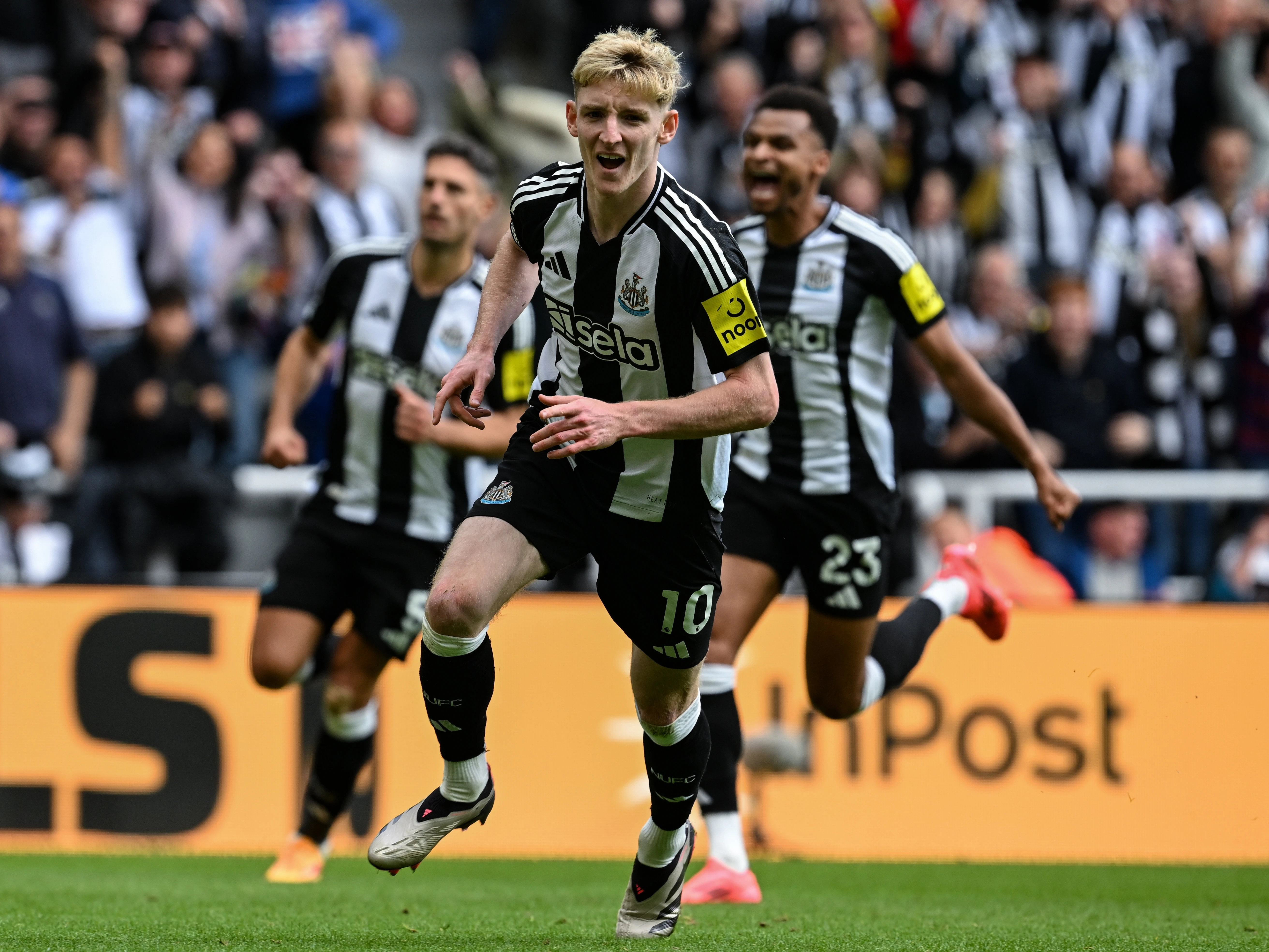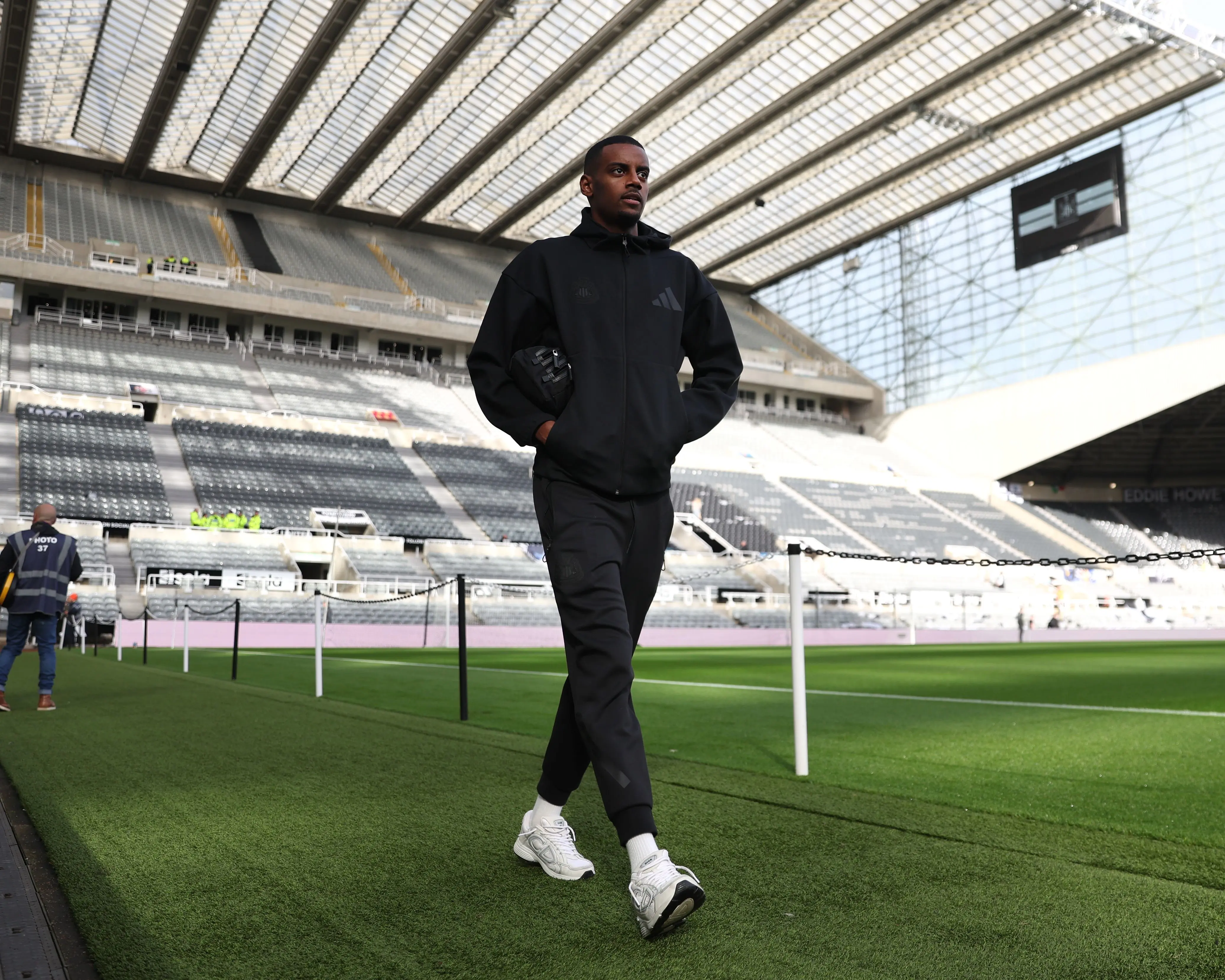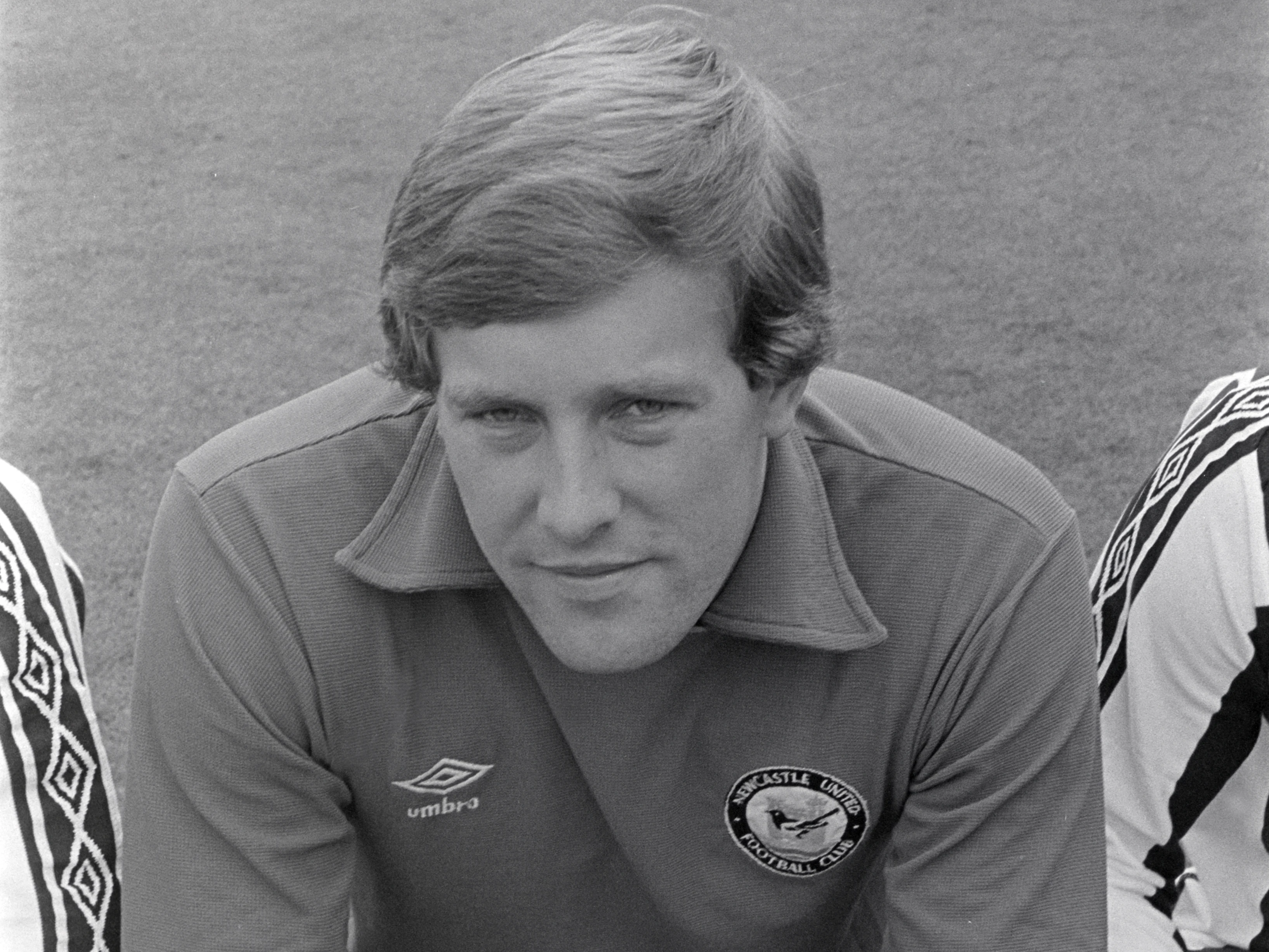“The first time I met Bobby was 1960,” says Woods, adding a splash of milk to a cup of coffee in Greyjoy’s, Gosforth – a short walk away from his home. “And when I say ‘met’ him, I was playing for Newcastle as a 19-year-old at West Brom. It was a Monday night, just my second away game and I played against Bobby. They’d lost five in a row, but they beat us 6-0!”
Woods would go on to play 30 times for the Magpies – scoring ten goals – before taking in spells at Bournemouth and Crystal Palace. In 1966, he signed for Ipswich, where Sir Bobby was appointed boss just before the end of the decade.
“He walked into the dressing room with the chairman, who introduced all of the players to him, and he had an aura about him,” Woods recalls. “He was a tall man, he had a certain stature and you could see he knew what he was talking about.
“But it didn’t start well for him, you know. I think his first four or five games, we struggled a bit and there was a Tuesday night game – against Manchester United, I think – where we lost and the crowd were very, very bad. After the match, the chairman came to see him and said: ‘Bobby, I’ll see you in your office at 9 o’clock tomorrow.’ Bobby went home and told Elsie that he thought he was going to lose his job.
“So, he goes back into work the next morning and at 9 o’clock there’s a knock on the door. And in walks the chairman. ‘Two things, Bobby,’ he says. ‘First thing, could I apologise for the behaviour of the crowd last night? And secondly, could you pop along to the secretary’s office? I’ve just extended your contract by another three years.’”
Sir Bobby, pictured at home, during his time as Ipswich manager.
Woods left Ipswich for Watford in 1970 but returned, in another capacity, four years later. It was the start of a halcyon era for the Tractor Boys but, had it not been for a chance encounter with his former manager at a second-string game in Lancashire, he may never have got to be part of it.
“I was youth team manager at Blackburn Rovers. I’d just left Watford and Ken Furphy had taken me with him when he got the job up there,” he explains. “One day, I was sitting in my hotel room on my own, I looked at the local paper and it said Bolton Wanderers’ youth were playing Ipswich. I thought: ‘What am I doing here? I could go down and watch them.’ So I got in my car, got a ticket for the directors’ area, and as I was sat having a cup of tea, in walked Bobby. He came up to me and said: ‘Hello son, how are you?’ I said I was fine, and then he said: ‘I’m looking for a youth coach.’
“Anyway, we went out for the match, and when we came back inside he said: ‘You know, I told you I’m looking for a youth coach. We’re playing Stoke on Saturday and we’re staying just off the M6. Why don’t you come down and have dinner with me?’ So down I went, I had something to eat and he offered me the job straight away. ‘What about Blackburn?’ I asked. ‘I’ll sort that out,’ he said.
“Two days later, Ken said that he didn’t want to stand in my way. Ipswich were a division above us, and I decided to go back. But if I hadn’t have looked at the paper that day, I wouldn’t have seen Bobby!”
Over the years that followed, Woods guided Ipswich’s youngsters to a hat-trick of titles in the South East Counties League – ahead of their counterparts from Chelsea, Tottenham and West Ham – as well as two FA Youth Cups. In the process, he worked closely with the likes of Terry Butcher, Russell Osman and John Wark, who would all go on to play a key role as the Tractor Boys lifted the UEFA Cup in 1981.
“The thing about Bobby, he was a bit special,” Woods grins. “If there was a youth match he could get to, he would be there. That’s how much he got involved and you could see how it developed.
“Do you know, Paul Gascoigne came down to Ipswich before he was at Newcastle? We watched him play in a trial match. He was a tubby little fella, and Bobby wanted him to sign on but he wouldn’t. Bobby said: ‘Well come back when the next school break’s on.’ But we never saw him again.”
Sir Bobby and Paul Gascogine during an England training session in 1990.
A year after Ipswich’s success on the continent, Sir Bobby departed Portman Road to take up the England manager’s role left vacant by Ron Greenwood. The Three Lions failed to qualify for Euro 1984 but made it to the last eight of the World Cup in Mexico two years later, where only the mastery – and villainy – of Argentina’s Diego Maradona halted their run. After a forgettable summer at the 1988 Euros, England returned to the global stage in 1990 and came within a whisker of a first final since 1966, losing – in agonising fashion – to West Germany in Turin.
Woods kept in touch with Sir Bobby throughout and, after taking on a role as a scout, was very much at the heart of the latter tournament.
“When Bobby left Ipswich he said to me: ‘Charlie, the chairman wants to see you.’ And I thought: ‘Oh, crikey!’ I headed through and the chairman said: ‘Charlie, Bobby has said that we mustn’t lose you. We’d like you to sign a new, seven-year contract.’ So I did, and they honoured that.
“Although I wasn’t working for England, Bobby would still call me up occasionally. The odd job or bit of match assessing, I’d go and do for him. I’d say: ‘I’ll have to ask my manager, mind.’ And he’d say: ‘Leave that to me.’
“Obviously I worked for him at Italia 90. I was in the north – Milan, Florence, Genoa – and I was putting together match reports on the teams playing in that area. He rang me every day, asking what I thought. Sometimes it was four in the morning before I got finished! But it was enjoyable, and you got to meet so many people as well. I thought Bobby did a great job for England – a super job.”
Sir Bobby on the beachfront at Sitges, near Barcelona.
While Woods continued at Portman Road – where he served as assistant boss, and later a scout – Sir Bobby embarked on a rather more nomadic spell, taking charge at PSV Eindhoven, Sporting Lisbon and Porto before landing the manager’s job at Barcelona in 1996. Not long after that, Woods took up a new position himself, joining Tottenham’s scouting setup. As ever, though, he and Sir Bobby remained close.
“I’d say: ‘Bob, I’m coming over to Portugal this week,’ and I’d end up staying with him and Elsie,” he remembers. “He loved to talk about the game in England. It was good. And that’s where I first met José Mourinho, when he was an interpreter at Sporting Lisbon, and André Villas-Boas, when Bobby worked at Porto.
“André used to come to Bobby’s apartment when he was 16. Bobby would say: ‘You talk to him, Charlie. He’s driving me nutty! He wants to be a scout for me.’ I said: ‘What, at 16?’ But eventually he became one and built it all up. Bobby was very good to people. He wouldn’t throw them away; he’d talk to them.
“When Bobby first got to Portugal, the Sporting president had said: ‘I’ll get you a lad we know to be your interpreter.’ Bobby did all of the stuff on the training pitch and Mourinho would say to the players: ‘This is what Bobby wants you to do.’ And Mourinho was very clever – he wrote everything down for himself, and I don’t blame him. Bobby was a good coach, never mind a good manager of men. Anyway, they became very friendly and I remember the night he left Porto he rang and said: ‘I just wanted to let you know I’m on my way to Barcelona with José. We’re going to meet them tomorrow and I’m going to take the job.’ I said: ‘Bloody hell!’ And it happened!
“The thing was, people wanted him. PSV, Sporting, Porto – whenever one was coming to an end, another wanted him. That’s how his reputation was, and I thought he had a wonderful career. When I was at Tottenham, he phoned me one day to say: ‘I’ve got my job.’ I said: ‘What do you mean?’ He said: ‘I’m heading up to Newcastle now. I’m going to be interviewed and, if everything goes well, I’m going to take it.’ Of all the jobs – and I’m not saying he had a special preference – the one up here was a knockout for him, and he loved it.”
Sir Bobby as Newcastle boss.
It was September 1999, and United were languishing just one place off the foot of the Premier League table after losing six of their first seven games. Following Ruud Gullit’s resignation, Sir Bobby duly took over, swiftly hired Woods as his chief scout, and so a special period in the Magpies’ recent history began.
“I was delighted to work for him and delighted the club had great success, because when he came, they were at rock-bottom,” says Woods, who was instrumental in bringing players such as Craig Bellamy, Jermaine Jenas and Jonathan Woodgate to St. James’ Park. “I think that year they finished 11th, and the last three years he was there it was third, fourth and fifth.
“He was a very experienced manager by that point, and he was a bit worried about Alan Shearer – he wanted to protect Alan and make sure he played in all of the Premier League games, so sometimes he had to leave him out of European games to make sure he was fresh. The Premier League was his main aim, and he was thoughtful like that. I don’t think Alan liked it very much but Bobby was just trying to protect him, and I think he did. He liked Alan a great deal.
“Bobby was the captain of a good ship at Newcastle, he really was. He was the leader, and he knew what he was doing.”
Woods was taking in an Old Firm derby clash the day before Sir Bobby lost his job, in August 2004, after a winless start to the new Premier League campaign.
“I’d been sent to watch (Jean-Alain) Boumsong and a fella called Bobo Baldé, another centre back, and I thought I’d better phone Bobby on the way back,” he remembers. “I said: ‘Bob, I’m not putting my name to those two – I think they’ll get you the sack!’ He said he’d better ring the chairman, but he called me back later to say he couldn’t get hold of him.
“The next morning, he spoke to Tony Toward – Tony’s a great lad, I love him to bits – who said the chairman would like to see him at St. James’ Park. But he said there was a part of Tony’s voice that was a bit worrying. Bobby asked if I’d meet him there. ‘I’m a bit worried,’ he said. But I told him that he might just want to talk to him about Boumsong and Baldé. Anyway, I set off from my apartment in Jesmond, he set off from the training ground and we both pulled in together. Up we went to his office, and Russell Cushing phoned down and said: ‘Can you go up and see Freddie?’ Ten minutes later, he came back down and said: ‘Charlie, I’ve lost my job.’
“Personally, I feel he was very hard done by. I think he had another couple of seasons, or even more.”
Woods outside his home in Gosforth.
It’s almost 15 years since Sir Bobby’s final game as United boss and, as of today, exactly a decade since his passing. Five days earlier, his final public appearance had come, fittingly, at St. James’ Park, where many of those who took part in England and West Germany’s epic last-four encounter in 1990 came together in his honour, raising hundreds of thousands of pounds for the fledgling Sir Bobby Robson Foundation.
Woods and his wife, Pat, still see Lady Elsie on a regular basis. Last year, a feature-length film about Sir Bobby’s life, Bobby Robson: More Than a Manager, was released to critical acclaim, while the Foundation – which the man himself described as “his last and greatest team” – has now raised more than £13.5M.
“The amazing thing, whenever we used to go out for a meal or anything – after he’d finished at Newcastle – was the number of people who came up to him,” Woods smiles. “People from this high,” he gestures, his outstretched hand representative of a schoolchild, “to middle-aged people to pensioners. They all absolutely loved him.
“And everybody still talks about him, they really do. With the Foundation in the North East of England, you can see what he’s done. But even in Portugal, the yearly golf tournament (the Sir Bobby Robson Celebrity Golf Classic) has raised more than £1M for the Refúgio, a centre for young children. People are actually queuing up to go and play in that tournament!
“And at Ipswich, his legacy is the same. The statue they have of him there, with the finger pointing, is so lifelike; I’ve seen that pose before! He could run anything, from the bottom to the top; not many managers would take such an interest in a reserve side or a youth side. He missed nothing, and he was a privilege to work for.”




